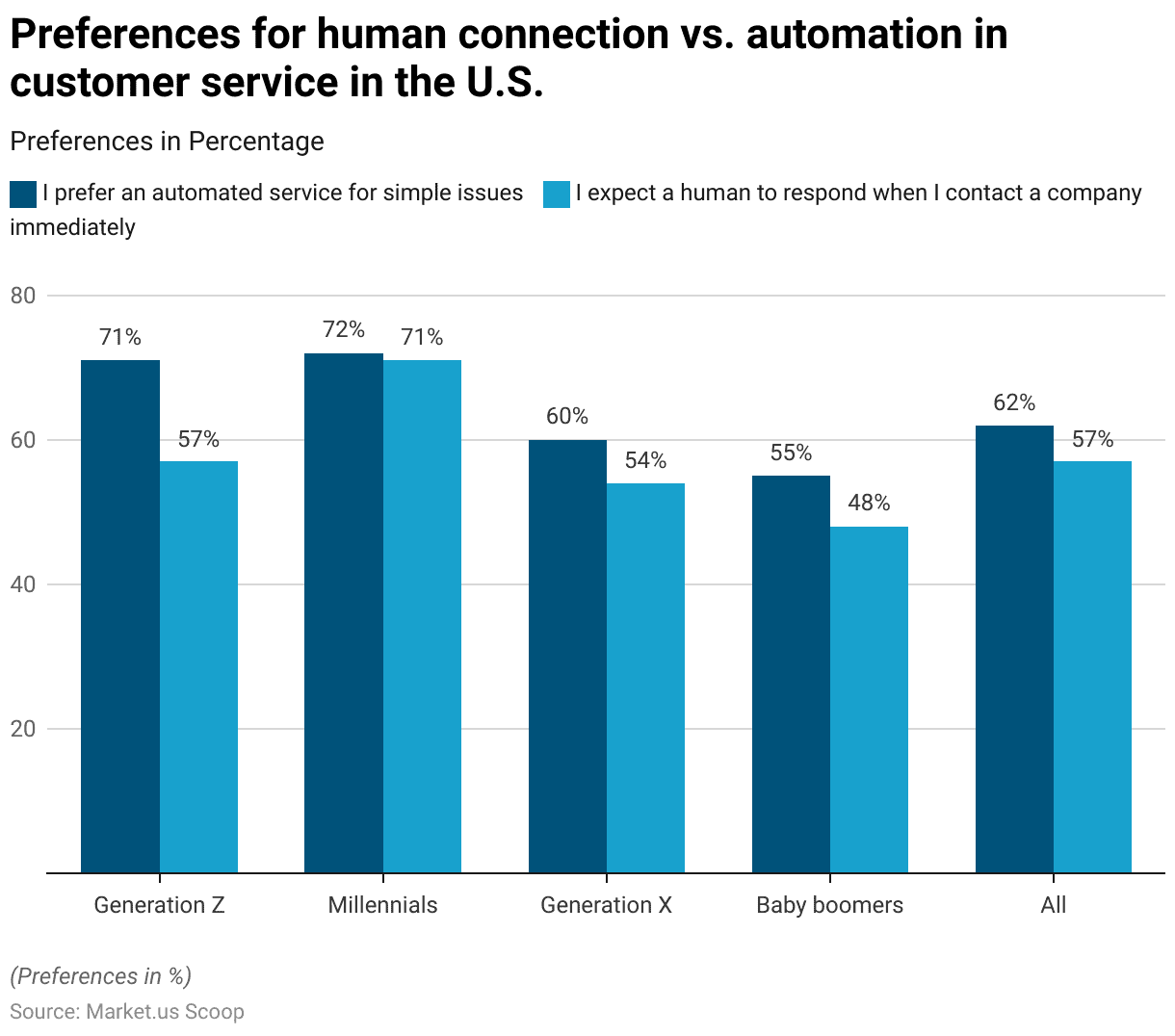A reliable help desk software solution is the backbone of any successful customer service strategy, organizing support requests, and empowering agents to deliver timely and effective assistance.
But, when you face the question of how to choose help desk software, there are literally hundreds of things that factor in. Your business has to consider deployment options, cost, scalability, and long-term value when choosing the best help desk software for small businesses.
And just when you think you are getting closer to your decision, you realize you forgot the most important part—your team’s unique needs.
This detailed guide will walk you through the essential factors to consider when buying a help desk tool—from identifying your specific needs and budget to evaluating key features and integrations.
Let’s get started!
What Is Help Desk Software?
If you are new to the topic, help desk software is a customer support solution that helps businesses manage and resolve customer inquiries efficiently. It acts as a central hub where support teams can track, prioritize, and respond to tickets from multiple channels, such as email, chat, and social media.
Beyond handling customer queries, help desk software benefits internal teams by streamlining IT support, HR requests, and administrative tasks. Features like ticket tracking, SLA management, knowledge bases, and analytics help organizations improve efficiency, reduce workload, and deliver seamless support experiences.
Some solutions, like ProProfs Help Desk, also offer AI-powered suggestions and self-service options to speed up issue resolution and improve customer satisfaction.
What Are the Common Types of Help Desk Software?
There are multiple help desk vendors in the market today, selling different types of solutions for different businesses. Amidst all these options, choosing a help desk ticketing system can seem like a mountain to climb.
Here are four common types of help desk software that will help you narrow down your search:
1. Web-Based
A web-based or cloud-based help desk software is hosted on the vendor’s servers. Instead of making a one-time payment, you are required to opt for monthly or annual subscriptions. The best part is that your business does not need to worry about maintenance, data backup, or security, as the software company handles these.
2. On-Premise
To operate an on-premise help desk, your business must purchase the software license and pay a one-time setup fee. You will have to install the system on your server and look after its maintenance, data backup, and security. Although this type of software might prove to be more expensive, you will have complete control over the privacy of information.
3. Enterprise
Enterprise help desks, as the name suggests, are used by large companies with a big support team and need advanced features. For instance, you can get IT asset management, change management, multi-brand support, enterprise reporting, and more features. Due to advanced features, enterprise help desks are expensive compared to their counterparts.
4. Open-Source
An open-source help desk allows developers to access its source code. In simpler terms, your developers can modify or enhance the tool depending on the needs of your business. Your team can build the tool over the course of time, add more features, fix bugs, make it more secure, enhance its user interface, and more.
How to Choose the Right Help Desk Software for Your Team
If you have no idea how to choose help desk software or what factors to consider, then this section is for you. From understanding customer expectations to identifying the most in-demand help desk features, there is a lot you need to keep in mind.
1. Understand Customer & Employee Expectations
Before picking the right help desk solution, you need to understand what customers expect from your support team. Around 54% of all consumers globally say they have higher customer service expectations than they did just one year ago.
While some customers may wish to speak to an empathetic human over a call, others might demand an instant solution via an automated technology like a chatbot.
Image Source: Scoop.market.us
You can understand these expectations by identifying your most popular channels or directly asking your customers via surveys.
When we talk about employees, it is your responsibility to reduce their efforts and make their lives stress-free. The productivity and operational efficiency of your agents are dependent on the tools they use. Therefore, before finalizing a help desk or help desk migration, you must consider taking suggestions from those who directly deal with customers—your service managers and representatives.
2. Raise Important Questions About Your Help Desk Vendor
Now, once you have clearly understood customer needs and expectations, it’s time to raise important questions about various help desk vendors.
- How many paying users do they have?
- What is their average rating on popular software review platforms?
- How easy is it to contact them for technical or non-technical assistance?
- How many communication channels are they available on? (email, phone, chat, etc.)
- What other perks/benefits do they offer?
- How secure is your business data with them?
- Do they provide a free trial of their tool?
- What help desk metrics does the tool allow you to measure?
The answers to these questions will provide a strong base for your research and help you realize the various pros and cons of every tool you consider. After discussing with your team or service experts, you can frame more questions.
3. Consider key Help Desk Features
Your search for the best help desk software is incomplete without factoring in the features. Let’s look at some of the core features that your tool should have:
a. AI Capabilities
AI help desk Management features like customer intent analysis and response suggestions have become support agents’ new favorites. AI can summarize a lengthy ticket and offer response suggestions, saving time and effort. Watch this video to learn how an AI help desk can help your team automate tasks and offer faster support.
b. Ticket Management
Ticket management is one of the primary features of help desk software. You can convert every customer issue/request into a ticket and successfully track the entire ticket lifecycle. Your agents can monitor the progress of all tickets in a shared help desk workflow dashboard.
c. Internal Collaboration
As a business, you may need more than an individual or department to resolve a ticket completely. Internal collaboration features such as private notes, parent-child ticketing, etc., allow your agents to work in sync and resolve tickets faster.
d. Knowledge Base
All great help desk tools have one thing in common; they allow users to create a knowledge base from scratch. You can allow customers to find relevant help using FAQs, articles, video tutorials, etc., and reduce your ticket volume by up to 80%.
e. Reports & Analytics
The right service desk software must offer your team all the data you need. You can track key customer service metrics such as first response time, customer satisfaction, ticket backlog, etc. Managers can also monitor team performance from time to time.
4. Scalability Is the Key
Overlooking the scalability factor while purchasing help desk software can be detrimental to your business growth. You need to check with sales and customer service teams if the solution you are considering can support a large volume of customers.
Go for a help desk that can match your growing business requirements.
Let us say, you have a small team at present, but the business could expand at some point in the future. With business expansion, you would need a powerful help desk ticketing system to handle the rising volume of customer issues and requests.
A scalable and future-proof software helps you better manage customer communications and collaborate with teams efficiently without losing any customer queries. Help desk managers can rest assured that even in case of rapid business expansion, their help desk tool will be more than ready to grow along.
5. Focus on Your Budget
No matter if you have a customer service team of a hundred or ten members, budget is always an important factor. Without a sound knowledge of your budget, you are just taking a shot with both your eyes closed.
Here are some points to consider to ensure the help desk system fits right in your budget:
- Don’t get distracted by steep discounts or low prices. A low price does not guarantee quality features. Go for a tool that offers all the features your team needs without burning a hole in your pocket.
- Get the upper management involved and take their approval before finalizing any help desk tool. Keep things transparent and let your leadership know where and how the money is going to be spent.
- Instead of making a heavy investment in buying an on-premise solution, buy a cloud-based help desk software that offers flexible pay-per-agent plans. Go for annual plans as most companies offer heavy discounts (anywhere from 10 to 50%) on them. Also, ask if there are any hidden costs or charges.
6. A Free Trial Can Work Wonders
Some help desk vendors offer a free trial for their product, which is usually limited to 15 or 30 days. A free trial can offer you a glimpse into a help desk system and help you make a more confident purchase decision.
With a free trial, you can actually get to use the tool that you are going to purchase without spending a dollar. Using a trial version is a great way to check if all the advertised features and options are actually included and how well they function. Most trials offer you premium features so that your team knows exactly what they are getting into.
A window of 15 to 30 days is more than enough to gauge the efficacy of a tool and explore all features in greater detail. During this period, ask your agents to jot down all the things they love and highlight areas where the tool falls flat.
7. See How Well Your Team Responds
Selecting the right help desk software is only half the battle won. You need to consistently see how your team responds to the tool and whether they are facing any challenges or not.
Before you get all hands on deck, make sure your team is trained on basic help desk skills. They must have a fair idea about ticket prioritization, escalations, canned responses, ticket resolution time, and more.
- Whenever your team encounters any challenge, feel free to contact your help desk vendor for support. Visit their help center and look for relevant FAQs, help articles, video tutorials, etc., to overcome any hurdles.
- Hold regular team discussions and meetings to understand how comfortable your agents are with the tool. If they are facing challenges even are weeks of use, the tool might not be the best fit for you. With the right tool, you must be able to witness enhanced productivity and fewer efforts on the part of your agents.
- Create an internal knowledge base and allow agents to share best practices, tips, or hacks on making the most of the tool. For instance, an agent can share how he discovered an amazing feature and how it can solve a major problem.
How Does Help Desk Management Software Work?
Help desk management software streamlines customer support by organizing, tracking, and resolving issues efficiently. Let’s explore all the steps involved.
1. Ticket Creation
When a user submits a query via email, chat, or web form, the software automatically generates a ticket with details like issue type, priority, and customer information.
2. Ticket Assignment & Categorization
The system assigns the ticket to the right department or agent based on predefined rules, such as workload balancing or expertise. Some platforms use AI-powered routing for faster resolution.
3. Collaboration & Resolution
Agents can collaborate using internal notes, share tickets with other departments, and escalate issues if needed. AI tools may suggest responses, or agents can manually respond to tickets.
4. Tracking & Monitoring Progress
Supervisors and agents can track the status of each ticket (open, pending, resolved) and get notified of urgent issues. SLAs (Service Level Agreements) ensure timely resolutions.
5. Knowledge Base & Self-Service
The system may include a help center, enabling customers to find answers on their own, reducing ticket volume, and improving efficiency.
6. Reporting & Analytics
Support managers can analyze response times, CSAT ratings, ticket trends, and other help desk metrics to optimize support operations.
FREE. All Features. FOREVER!
Try our Forever FREE account with all premium features!
Who Benefits From Help Desk Software?
Help desk software is valuable for various teams and industries, improving efficiency and customer satisfaction. Here’s who benefits the most:
1. Customer Support Teams
Support agents can track, manage, and resolve customer queries efficiently using ticketing, automation, and AI-powered responses, leading to faster resolutions and improved service quality.
2. IT Departments
IT teams use help desk software for incident management, asset tracking, and troubleshooting. It helps in prioritizing and resolving IT issues, reducing downtime, and ensuring smooth operations.
3. Business Owners & Managers
Executives gain insights into customer interactions, agent performance, and service trends through reports and analytics, helping them make data-driven decisions to improve customer support strategies.
4. HR & Internal Support Teams
HR and administrative teams use it to handle employee inquiries, onboarding requests, and internal help desk issues, ensuring smooth internal operations.
5. Educational Institutions
Schools and universities use help desk software to manage student and faculty support requests, IT issues, and administrative inquiries efficiently.
Ready to Choose the Best Help Desk Software?
Getting your hands on a good help desk should not give you sleepless nights. Your team deserves the right tool that can not only reduce their efforts but also empower them to solve customer issues promptly.
Once you have explored the factors mentioned in this guide, sit with your service team and understand what they want. Remember to compare features and never compromise on security—we repeat, never!
If you want AI-powered help desk software that doesn’t cost a fortune, you can try ProProfs Help Desk. While AI does the heavy lifting, agents can focus on delivering memorable service experiences.
Choosing Help Desk Software: FAQs
What must a good ticket system be able to do?
A good ticket system should organize, prioritize, and track customer inquiries efficiently. It must support multi-channel communication, automation, SLA management, collaboration tools, and reporting features to enhance productivity and service quality.
What does a help desk employee do?
A help desk employee resolves customer or internal support issues by responding to queries, troubleshooting technical problems, and escalating complex cases. They also document solutions, update knowledge bases, and ensure timely follow-ups for a smooth support experience.
 Tips
Tips
We’d love to hear your tips & suggestions on this article!
FREE. All Features. FOREVER!
Try our Forever FREE account with all premium features!


 We'd love your feedback!
We'd love your feedback! Thanks for your feedback!
Thanks for your feedback!







